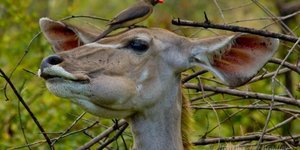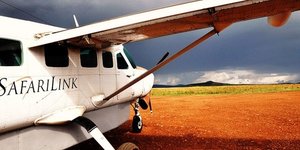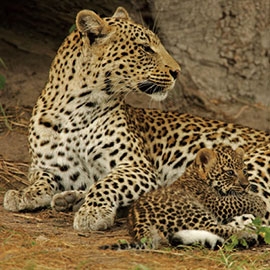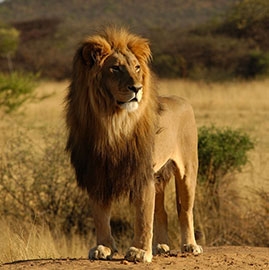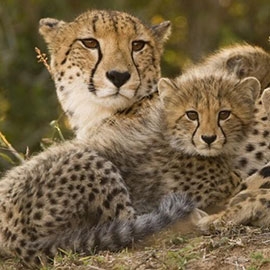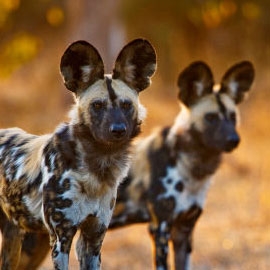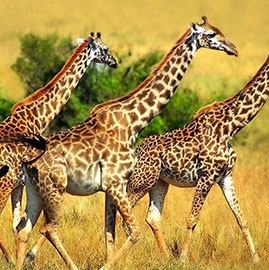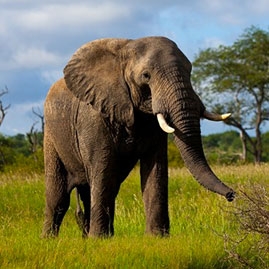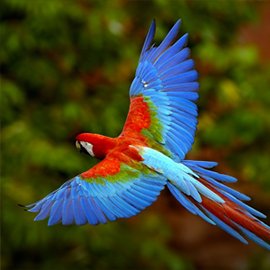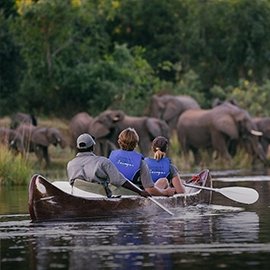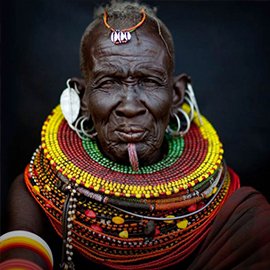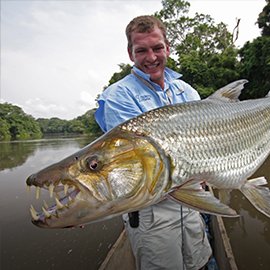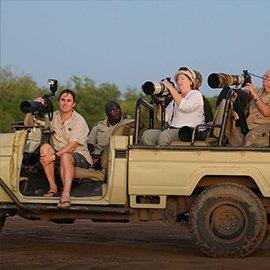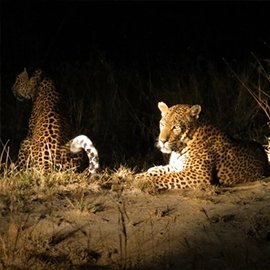Ruaha National Park
Safari suitability: 9/10
Find your tourFour of the big five can be seen in Ruaha National Park on long and short wilderness walking safaris and game viewing expeditions.
What YAS members think
Highlights
- Located between the northern and southern hemispheres, where migrant birds and east and south African mammals meet
- There is an abundance of wildlife, including 10,000 elephants
- The park is not a very busy tourist destination, keeping its ecosystem largely pristine
- Ruaha National Park is an excellent location for bird watching, with over 550 species of birds
About Ruaha National Park
Centrally located in Tanzania, Ruaha National Park is one of the country’s largest parks covering about 22,000 km² (8494 miles²). Established in 1910, the park is part of a larger ecosystem that includes Rungwa Game Reserve, Usangu Game Reserve and other protected areas. It is made up of mountains and escarpments, grassland plains and riverine areas and contains over 1,650 plant species. Because of its unique location at a joining point between the northern and southern hemispheres, where migrant birds and east and south African mammals overlap, it is exceptional in that visitors can experience an abundance of wildlife all in one place. In short, Ruaha National Park is perfect for migration enthusiasts. The park is somewhat remote and is not on a main tourist circuit, offering visitors an opportunity to experience its pristine and unexplored ecosystem. Though there are some natural springs throughout the park, the main water source and “life line” is the Ruaha River, which also serves as a resource to lure game out into the open.
Wildlife of Ruaha Natioal Park
The park is best known for its large population of elephants. To date there are about 10,000 elephants residing within its boundaries. Ruaha National Park also is home to a variety of other mammals including large prides of lions, cheetah, buffalo, zebras and giraffe and a variety of reptiles including crocodiles, agama lizards and both poisonous and nonpoisonous snakes. The park is considered to be a birdwatchers’ paradise with more than 550 species of birds including the purple heron, grey-crowned crane and red-billed hornbill.
Ruaha National Park is easily accessible by car or air travel. By land, the most direct route is from Iringa, which is about 130 km (80 miles) long. There are chartered and commercial flights from Arusha, Dodma, Kigoma and Dar-es-salaam.
When is the best time to visit Ruaha National Park?
The dry season at Ruaha National Park falls between the months of May and December, which is also the best time for viewing large mammals and predators. The wet season, which runs from January to April, is the best time for bird watching and to experience the flourishing vegetation and plant life.
I visited Ruaha on the heels of visiting Selous. I thought the two would be very similar and, in some respects, they were. But, Ruaha has even more dense foliage and less visitors. So, the animals were a bit harder to spot, but there were less crowds. I prefer northern Serengeti because of the closed-sided vehicles and because you can do a private safari. Oh, and the tsetse flies were pretty bad in Ruaha! Wear light coloured clothing.
Sort by:

Recently, I had the incredible opportunity to explore Ruaha National Park on a 1-day safari, and the experience was nothing short of breathtaking. As a tour operator at Dakado Tanzania Safaris, I’ve visited many parks, but Ruaha stands out as a truly wild and untouched paradise. Untamed Beauty and Stunning Landscapes Ruaha is Tanzania’s largest national park, covering over 20,000 square kilometers. The landscapes are diverse, featuring rolling hills, vast plains, baobab-dotted savannas, and the iconic Great Ruaha River, which is the park’s lifeline. The scenery alone makes the journey worthwhile! Incredible Wildlife Encounters Despite having just one day, I was amazed at the abundance of wildlife. Ruaha is home to one of the largest elephant populations in East Africa, and we were lucky to witness herds of these gentle giants moving gracefully through the park. We also spotted: A pride of lions resting under a shady tree after a successful hunt Several giraffes and zebras peacefully grazing in the golden savanna A magnificent leopard lazily perched on a tree branch Countless antelopes, including impalas, kudus, and sable antelopes Nile crocodiles and hippos basking along the Ruaha River A Birdwatcher’s Paradise Ruaha is also a dream destination for bird lovers, with over 570 bird species recorded! We saw vibrant lilac-breasted rollers, bateleur eagles, and yellow-billed storks. The park’s birdlife is truly mesmerizing. Why Visit Ruaha National Park? ✅ Fewer Crowds – Unlike the Serengeti or Ngorongoro, Ruaha offers an intimate safari experience with fewer vehicles and tourists. ✅ Authentic Wilderness – The park remains wild and untouched, providing a raw and authentic safari experience. ✅ Diverse Wildlife and Birdlife – From predators to herbivores and exotic birds, Ruaha offers a rich variety of species. Final Thoughts If you’re looking for a truly off-the-beaten-path safari experience, Ruaha National Park is the perfect destination. Whether it’s for a day trip or a longer adventure, this park never disappoints. I highly recommend adding Ruaha to your Tanzania safari Plan!
As a university student, we went on a trip through Tanzania, Ruaha was one of our stops. It was my first safari experience, and it made me hungry for more... It was a great park. We had an amazing time driving around, looking for wildlife and enjoying the scenery. The river was a hotspot for wildlife, including hippos and crocodiles. The plains give you a great opportunity to scan for wildlife. We stayed in tents near the river (not sure if it was an existing campsite, or it was just made for us). The noises were amazing. Something I do remember is seeing a cell phone tower in the distance. It was great for phone coverage, but it didn't fit the picture (it was very far away though, probably most people will not notice it). I enjoyed every minute in the park, but the most memorable moment was the bush walk. We went on foot with a ranger along the riverbank. It was an amazing feeling, it kind of exposes you as you know you are vulnerable. Overall, it was a great experience! Definitely worth a visit.
 Tanzania
Tanzania
Ruaha was probably the most splendid park we have spent time in. Beautiful baobab valley on the way there and hundreds of elephants inside the park along with all other kind of wild life did make a huge impression.
 South Africa
South Africa
Ruaha National Park is located in the southern parts of Tanzania, it is part of what is know as the southern circuit. If you were to fly directly from the Serengeti to Ruaha it would take a couple of hours, Coastal has flights that connect the two parks. You can also access this park by light aircraft arriving from the Selous, Dar es Salaam and Zanzibar. It goes well with a Serengeti Safari and also combined with Selous. What is interesting about this park is that it is the largest national park in Tanzania (about 20,226 square kilometres). Tanzania can be a little confusing with its game reserves, national parks and the different park rules. What you need to know is that you can do some walking, fly-camping is permitted but no night drives, so you will always need to be in camp between sunset and sunrise. There is enough excitement during the day and you will need the night to share stories and relax. What I love most about Ruaha is not that it is remote but that it feels remote. When you arrive, you know you are in a remote and raw natural area. The airstrip becomes a meeting place where you run into people that you have either seen at the airport, other airstrips or other camps. It is a place for not fellow safari goers but also for guides to connect. It seems that it is also a favorite spot for the lilac-breasted rollers to pose for a photo and for elephants and other plains game to stroll along the airstrip. Keep your camera ready when you are landing and taking off as it is then that you realise how rich in wildlife the park really is. The camps are well spread out, I love this about Ruaha as you seldom see other vehicles on game drives. That said, some parts are accessible for self drive visitors. You could easily spend a week in Ruaha and not feel bored, you can spend entire days out on a game drive to cover more ground. You can even split your stay between two camps, I highly recommend this as the areas that the camps are in, are far enough apart so that you won't be backtracking. If Roan and Sable are main interests they are found in different parts of the park so make this clear when looking for a camp to stay at to ensure that your needs are met. The game and bird life here is incredible and one of the things that really stood out for me is whenever we stopped to look at something, sitting on the edge of our seats and listening to the guide talk, there was always more than one thing to see. There is not much activity focused on water here, there are some routes that follow the riverbed, mostly dry (sometimes almost dry) and at other times flowing (it depends greatly on the time of the year). Activities are in the form of game drives and walking (walking needs to be arranged in advance). The quality of guides in Ruaha is high, it would have to be given the remote location of the park. This is of course very important as the quality of your guide is directly related to the overall enjoyment of your safari. All the guides that I spent time with here were resident guides and the great thing about this is that they knew the area very well. The best experience I had in Ruaha was watching a herd of elephants dig for water in the dry river bed. We sat for ages just watching them interact. There were no other vehicles around and it felt like the rest of the world did not exist.
I did a safari in Ruaha three years ago. It was my first experience on African soil. I was overwhelmed by its scope, its mammals and my nights spent in lodges. Unforgettable. And, yes, poaching exists. My guides showed me an elephant that had been killed 10 days earlier. Its head removed by chainsaws. My photos allow me to educate my friends on the horrific slaughtering of the pachyderm. I very much enjoyed visiting a park with little tourists. It was a bit as if I'd had my own private tour. Do not hesitate to do a safari in Ruaha, Tanzania. ____________________________________________________________________ J'y ai fait un safari de 3 jours. C'était ma première expérience en sol africain. J'ai été conquise par son étendue, ses mammifères et mes nuits passé en lodge. Mémorable. Eh oui le braconnage existe. Mes guides m'ont guidé vers un éléphant mort 10 jours plus tôt. Sa tête sciée à la scie mécanique. Maintenant au pays, mes photos me permette de sensibiliser mes amis-ies, à l'hécatombe du pachyderme. J'ai beaucoup aimé de visiter un parc sans touriste à grand échelle. C'est un peu comme si j'avais eu un tour privé. N'hésitez surtout pas. Accueil et souvenir mémorables.
Ruaha National Park is a remote, peaceful, isolated and beautiful Tanzanian Park. This park offers unmatched game drive experience with less vehicle in the park in comparison with northern Tanzanian Parks. The environment at Ruaha is wild, authentic and untouched in comparison to Northern Parks. Predators in the park have higher concentration than other southern parks and it is a paradise for Elephant lovers and you will find pack/groups of elephants every here and there in the park. On the banks of Ruaha River, You can enjoy a natural/guided walk. You will enjoy the walk at most as the park is also home to more than 400 birds species. Witnessing crocodiles on the Ruaha river bank or facing a group of more than 20 elephants can as fascinating and memorable for a lifetime as anything. Finally, just to conclude the beauty of the park, Any safari to Southern Tanzania is incomplete if it does not include Ruaha National Park. The Most amazing views, authentic wildlife, pleasant viewing, peaceful environment and pleasant weather awaits for you at the park.
Having visited Ruaha last September during the dry season, I was eager to return after the rains had come as I know what a dramatic change it can be in Southern Tanzania. While the animals tend to concentrate along the river during the dry season making for a prolific game drive, there are still many animals to be seen during the green season. However, with the trees in full-leaf and the grass much taller, you have to be more tuned into your surroundings in order to spot the animals. You see one or two elephants and suddenly 3-4 materialize out of the bush so silently. The colors of the animals also seem more vibrant against the green landscape. Overall, I would recommend that one should try to visit the park in both seasons, and if I had to choose, I would definitely go in Jan or Feb. I stayed at a lodge in the park and had a mixed experience given that the windows were only screened therefore when there was heavy rain during the night, the wind & rain blew into the room. As well during the wet season, it is best to check your bed sheets for spiders etc. As the lodge is situated on the Ruaha River, the nocturnal sounds of the hippos can either be exciting or disturbing as they continue throughout the night calling and snorting amongst each other. However the morning brings a brilliant sunrise over the mountains along with hippos, birds and occasional lions returning from the hunt. If you like to be away from the crowds and not in a convoy of safari vehicles then this is a park for you!
After spending time in northern Tanzania, I wasn't prepared for the marked change in climate in southern Tanzania. Ruaha is dense with foliage and has tsetse flies and mosquitoes galore. If you can look past that, it's what I thought a safari was supposed to be! We saw a fair number of lions and were pleasantly surprised at the paucity of fellow tourists. We were only there a few days before heading to Selous, but I would return...with ample light colored clothing!
When we first visited Tanzania we were told Tanzania's best kept secret was Katavi national park. And after an awesome visit there, we were told there was another contender for this exquisite title. The contender, as advised, was a natural, authentic, wild experience. Game was plenty here, there was less crowds and affordable superb game viewing experience. Curiosity kept us asking more and more about this park, and the more info we were fed the more our interest grew. Located on the southern circuit is Ruaha National Park, the largest park in Tanzania. We chartered a flight from Arusha to Msembe airstrip located inside the park. Our stay was at the mwagusi camp , a renowned camp located in the middle of r.n.p known for exquisite and world class service. Our first game drive was beyond expectation, our guide Samson was terrific, spotting leopards hiding in a thicket hundreds of metres away, he was in tune with us, keeping us alert with his spot-on facts about the area. At no one point were we bored. Herds of over 100 buffaloes and elephants were a constant sight here. Prides of lions parading their cubs also kept our cameras and binoculars busy. Giraffes,jackals , hyenas, cheetahs and an extremely wide variety of birds were also on offer. It was rare to bump into visitors in the park, so we had all this game to ourselves. One couldn't concentrate on one location for long as the variety of game was just tremendous. One had to be greedy so as to absorb all this game. After the visit I can completely concur on the number one contender title for Ruaha national park as Tanzania's best kept secret.
Domestic flights to Ruaha
Although it is possible to drive to Ruaha from Dar es Salaam, the drive is around 10 hours. As daily flights are available, most people opt to fly-in and make the most of their time.
The following airlines travel to Ruaha National Park

As Salaam Air has grown to be a leading air carrier between the Tanzanian Islands. Our experienced team understands that customer satisfaction is important to the creation of a successful flight operation. Thus, we go above and beyond to satisfy our clients. The airline plies eight routes to promote tourism within and outside the country. We have two fuel-efficient aircraft Cessna 208B Grand Caravan and Embraer EMB 120 Brasilia, which are good for the environment and the safety of our clients.We would like to help you discover more about our Islands here on our website and at every step of your journey Visit website
Also flies to:


Auric Air Services Ltd is Tanzania's preferred corporate and safari airline with a wide network of domestic scheduled services with daily scheduled services to more than 30 destinations and handles approximately 8500 passengers every month. From its bases at Mwanza AirportMwanza, Julius Nyerere International AirportDar-es-salaam and Arusha Airport, Auric Air provides scheduled charter flights to some of the most remote and otherwise inaccessible destinations (parks & game reserves) within Tanzania. Visit website
Also flies to:




Coastal Aviation is an airline operating out of Dar es Salaam - charter flights. Coastal Aviation flying to some 100 strips located in some of the most isolated pockets of the East African Region. The scheduled Coastal network also connects visitors to Kenya, Uganda and Rwanda with the world-famous Serengeti, links the emerging tourism destinations of Mozambique with the Southern Tanzania parks of Selous and Ruaha, and unites the tropical island paradises of Pemba, Zanzibar, Mafia and Fanjove Private Iaslandwith the National Parks and towns of the mainland. Our state of the art fleet is composed of 20 aircraft and has been expertly-adapted to the African safari environment, without compromise to safety and comfort. Visit website
Also flies to:




Premium Charter Service is an air charter broker based in Tanzania. We offer our valued clients a truly exclusive flying experience, one that combines luxury with the convenience of flying privately. Our network of domestic and international operators adheres to strict standards of quality. We deliver a superior experience to our clients with a high level of professionalism. Visit website
Also flies to:


Affordable Flights now connect the most remote and exciting parts of Tanzania - Zanzibar/Dar/Selous/Mikumi and Ruaha to Katavi and Mahale National Parks. Daily Flights from Zanzibar or Dar to Ruaha National Park via Selous or Mikumi. Visit website
Also flies to:


Premier safari airline and charter. Safarilink is Kenya's premier safari airline with a network of connecting domestic scheduled services to all the best safari destinations within Kenya and across the border into northern Tanzania. From it's base at Wilson Airport, Nairobi SafariLink provides daily scheduled flights to Masai Mara, Amboseli, Tsavo West, Naivasha, Nanyuki, Lewa Downs, Samburu, Lamu, Kilimanjaro, Loisaba, Migori and Diani Beach. Additionally it can also provide private charter flights if a client's particular requirement as regards destination or timing cannot be met by the scheduled services. Visit website
Also flies to:



TANZANAIR was formed in 1969 and pioneered aviation throughout Tanzania. Today it continues to live up to its slogan as theComplete Aviation Company. It was founded by Dinos J Samaras who managed the Company until he passed away in April 2010. It is now headed by his son John Samaras who was his deputy since 1983. With 45 years experience, TANZANAIR offers tailor-made air travel to suit the needs of its customers. With a modern fleet of twin and single-engine Cessna and Beechcraft turbine aircraft, TANZANAIRs well-established reputation leads the way in air charter services throughout the region. TANZANAIR operates out of its own purpose-built Passenger Terminal located between Terminal I and II at Julius Nyerere International Airport in Dar es Salaam. The passenger lounge is adjacent to the two hangars. It is housed within a secure wall enclosed compound with ample parking facilities. Visit website
Also flies to:

Ruaha map
Nearby parks and game reserves
Related articles
Latest photos
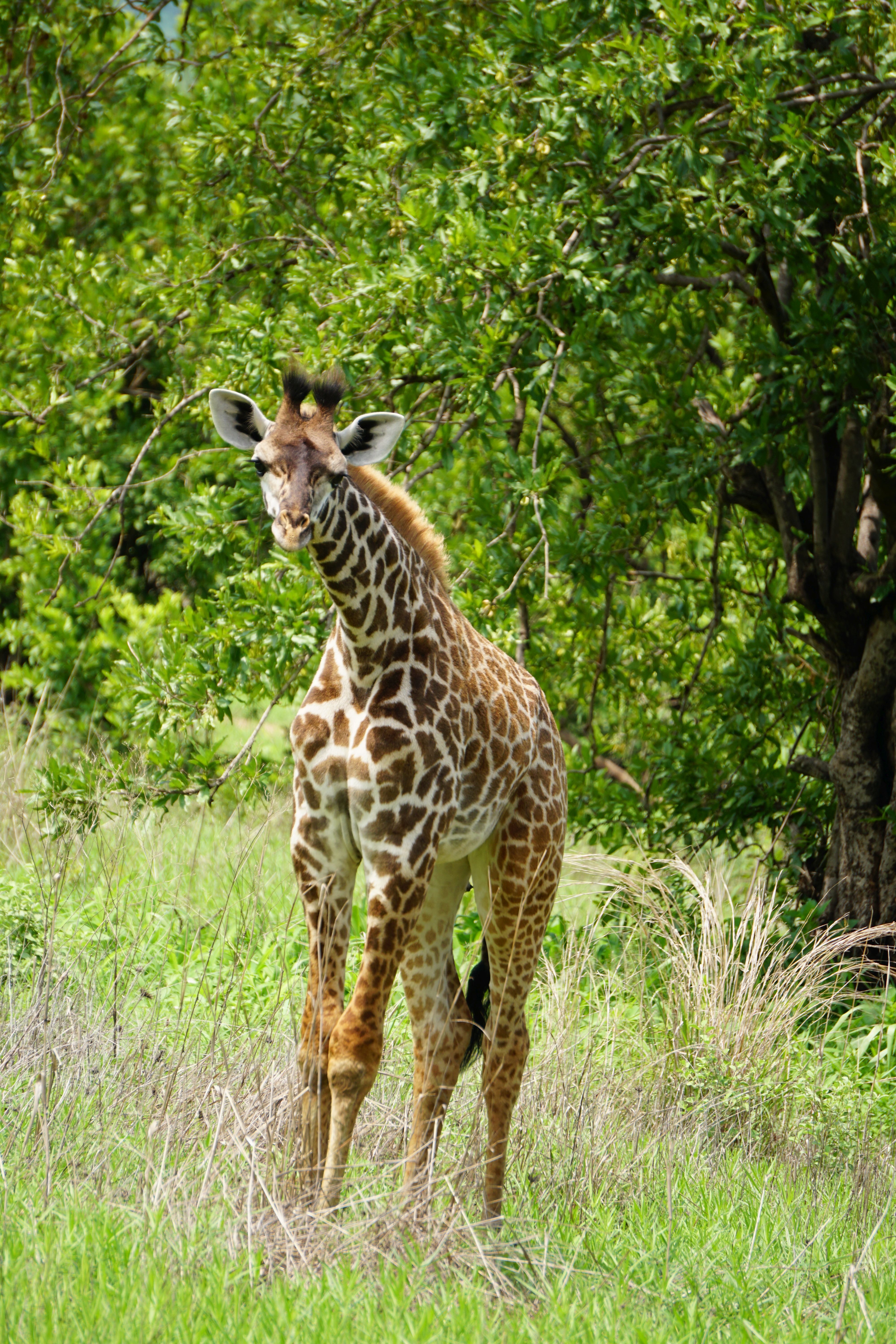


 United States
United States
 Belgium
Belgium
 Canada
Canada
 Kenya
Kenya
